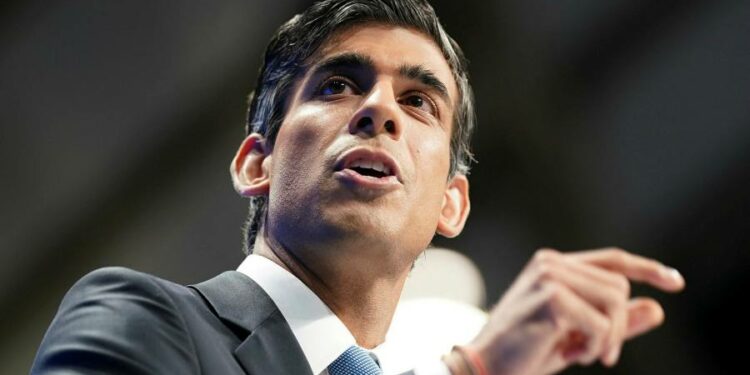Windfall taxes have a bad name for good reasons. Companies need to understand how their returns will be taxed before they invest, so a predictable tax system promotes capital spending and growth. If nations gain a reputation for appropriating profits when they have been legitimately made, they cannot blame companies for choosing to go elsewhere.
For all the general rules of thumb, there must be exceptions. Russia’s invasion of Ukraine represents the rare case where a windfall tax on North Sea oil and gas extraction would be efficient and fair. It should even be supported by oil and gas companies.
The UK is a net importer of energy. Before the pandemic began in 2019, it imported £8.5bn more oil, gas, coal and electricity than it exported. Higher energy prices threaten to push inflation up towards 10 per cent and knock almost 1 percentage point off growth this year.
Chancellor Rishi Sunak can do very little about rising commodity prices. But he can offset the enormous potential losses households face with a windfall tax on those companies that are gaining as a result of Vladimir Putin’s war by being able to sell the oil and gas they extract at much higher prices than they expected.
Windfall taxes can be justified when it is reasonable that those drawing up tax legislation did not foresee extreme circumstances that subsequently make them necessary. The UK’s North Sea oil tax regime, set in 2016 for a world of persistently low energy prices, taxes profits at a rate of 40 per cent. In 2011, the last time oil prices were high, then chancellor George Osborne imposed a rate of 62 per cent on profits from the North Sea.
A windfall tax is efficient precisely for the reasons tax professionals do not like it — it taxes past investment that cannot now be withdrawn. Offshore Energies UK, the industry body, is furiously opposed, saying investment will suffer. Its own evidence suggests this is nonsense. Capital spending in the North Sea is down 90 per cent since oil prices fell in 2014 even with the current, highly favourable tax regime.
Worse, in arguing against a windfall tax, the North Sea lobby seems to think it is justifiable for oil and gas companies, their executives and investors to make money from the plight of the Ukrainians. We cannot expect companies individually to give up these gains, since they will worry that competitors might not follow suit, but they should collectively support the government in imposing a windfall tax.
The Labour party has suggested increasing the effective corporate tax rate on North Sea activities by 10 percentage points. Sunak could drop his opposition and go further than Labour, reintroducing the 2011 regime for the 2021-22 tax year before announcing that regime will continue so long as oil and gas prices remain above a pre-determined threshold.
Remember, these are not punitive tax rates but simply those that were imposed by a former Conservative-led government when investment in the North Sea was much higher than it is now. The rates are not arbitrary, they correct something that was wrong in our tax system; smart companies should never have expected to walk away with gains while the rest of the country suffers.
The tax changes I am suggesting, along with the price changes since the October Budget, could provide one-off revenues for 2021-22 of a few billion pounds and raise the North Sea revenues for 2022-23 from the £2.5bn forecast in the October Budget to well in excess of £10bn.
The UK is a net energy importer, so taxes on the winners will never be enough to offset additional costs for the losers. But they can make a sizeable inroad into the UK’s cost of living crisis. There are no good economic reasons for Sunak to miss this opportunity.











